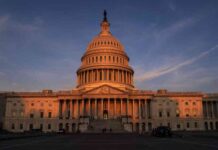Between 2011 and 2020, the world witnessed a staggering $1.34 billion in fines paid by the top pharmaceutical companies to the U.S. government for engaging in bribery schemes to boost their drug sales. The linchpin behind these repercussions was the Foreign Corrupt Practices Act, a pivotal piece of legislation that reshaped industry norms and practices. However, the landscape has taken an unexpected turn with President Trump’s recent executive order, effectively pressing pause on the anti-bribery law.
In a bold move that sent ripples across the pharmaceutical and business sectors, President Trump called for a temporary halt to new investigations and enforcement actions under the Foreign Corrupt Practices Act. This directive came with a mandate for U.S. Attorney General Pam Bondi to conduct a comprehensive review of ongoing probes, focusing on evaluating the law’s alignment with “American interests” and “economic competitiveness.” This decision has sparked debates and raised concerns within the industry and beyond.
Unpacking the Impact: Industry Response and Implications
The pharmaceutical industry, long under the lens of regulatory scrutiny, is now grappling with the implications of this sudden policy shift. The hefty fines imposed on major players in the past decade served as a cautionary tale, prompting companies to adopt stringent compliance measures. With the enforcement activities on hold, there is a sense of uncertainty looming over the sector, as companies navigate the delicate balance between ethical practices and business imperatives.
Industry experts and analysts are closely monitoring the unfolding developments, anticipating the ripple effects on global operations and corporate governance. The U.S. business community, echoing President Trump’s sentiments, has voiced concerns about the law’s impact on American competitiveness in the international arena. The delicate dance between regulatory compliance and commercial interests has taken center stage, underscoring the complex dynamics at play in the pharmaceutical landscape.
Expert Insights and Future Outlook: Navigating Legal and Ethical Boundaries
Ed Silverman, a seasoned journalist with a deep-rooted passion for unraveling the pharmaceutical industry’s complexities, sheds light on the nuances of the anti-bribery law and its implications. Drawing on his wealth of experience spanning nearly three decades, Silverman offers a unique perspective on the intersection of legal mandates, ethical considerations, and corporate behavior.
In a recent column for STAT, Silverman delves into the intricacies of the Foreign Corrupt Practices Act and the broader implications of President Trump’s executive order. His insightful analysis underscores the need for a balanced approach that upholds ethical standards while fostering a conducive environment for business growth. As stakeholders across the pharmaceutical landscape brace for potential changes, Silverman’s expert commentary serves as a guiding beacon in navigating the evolving regulatory landscape.
As the pharmaceutical industry grapples with the repercussions of President Trump’s anti-bribery law pause, the road ahead remains fraught with challenges and opportunities. Balancing legal mandates, ethical imperatives, and commercial interests will require a delicate dance, underscoring the need for a nuanced approach to regulatory compliance and corporate governance. With expert insights and industry analysis guiding the way, stakeholders are poised to navigate this evolving landscape with resilience and adaptability.

















